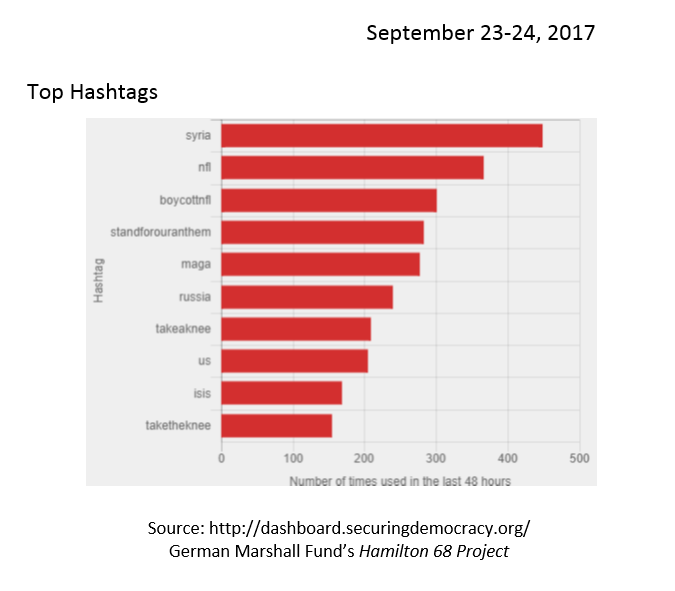November 01, 2017
WASHINGTON, D.C. – U.S. Senator Angus King (I-Maine), a member of the Senate Select Committee on Intelligence, today questioned representatives from Facebook, Twitter, and Google about the Russian government’s use of social media platforms to interfere in the 2016 election and the committee’s ongoing investigation. During his questioning, Senator King underscored both the responsibility of social media companies to create clear guidelines to mitigate malign activity on their platforms and the importance of creating public awareness to further the responsible consumption of news by the American public.
“[Information] warfare is the division of our society. And it’s not only us – it’s the entire West,” said Senator King in his questioning. “We know that the Russians were involved in the French election [and] we know that they were involved in the German elections…This is a sophisticated, worldwide strategy that applied here in 2016… [and] it’s still happening…We as a society, we have to understand when we’re being conned.”
The disinformation campaign from the Russian government is comprehensive and ongoing, with troll farms, bots, and fake accounts attempting to perpetuate fake news and sow discord among American citizens. Researchers at Columbia University report that posts from just six Russia-linked Facebook pages generated hundreds of millions of views during the 2016 U.S. election. During the hearing, Senator King also used a chart to demonstrate the hashtags Russian-linked accounts have recently used to further polarize discourse in the United States.

“This is a service of the German Marshall Fund, called interestingly, Hamilton 68, that follows hashtags on a daily basis,” Senator King said while presenting the chart that highlights hashtags employed by Russian linked accounts.” And I just picked a day in September… We have #nfl, and then we have #boycottnfl, then we have #standforouranthem… [and] #takeaknee. In other words, they were tweeting on both sides of the NFL dispute in order to exacerbate the divisions. One witness this committee had said that their strategy is to take a crack in our society and turn it into a chasm – and that’s exactly what we saw in 2016, and my point here is that it hasn’t stopped and it won’t stop.”
Senator King has repeatedly emphasized that the Russians’ efforts to interfere with our democratic process will not be limited to the 2016 election, and advocated for a transparent investigation by the Intelligence Committee in order to provide as much information as possible to the American people to help citizens identify examples of Russian tradecraft. He has been a strong proponent of allowing the American people to see and understand Russia’s involvement in the election, saying that an educated and vigilant public is a critical line of defense against cyber-intrusions and attempts to influence our electoral process.
Additionally, last year Senator King authored a provision to the National Defense Authorization Act with Senator Mike Rounds (R-S.D.) that requires the current Administration to develop options for deterring threats in cyberspace and determining what types of actions in cyberspace may warrant a military response. He has also introduced the Securing Energy Infrastructure Act with Senator Jim Risch (R-Idaho) bipartisan legislation that aims to protect America’s electric grid from cyber-attacks.
Today’s witnesses before the Senate Intelligence Committee – Colin Stretch, Vice President and General Counsel of Facebook Inc., Sean Edgett, Acting General Counsel of Twitter Inc., and Kent Walker, Senior Vice President and General Counsel of Google Inc. – represent companies that account for more than 70 percent of U.S. social media market. During the hearing, Senator King expressed disappointment that the General Counsels, and not the Chief Executive Officers, were testifying before Congress. According to Pew Research Center, 45 percent of U.S. adults get their news from Facebook, 18 percent get their news from YouTube, which is owned by Google, and 11 percent get their news from Twitter.